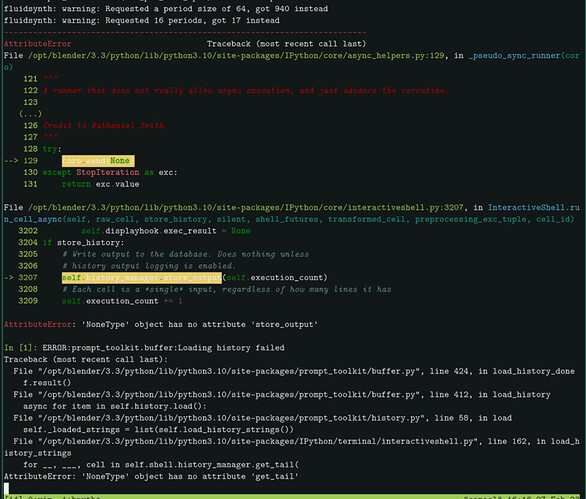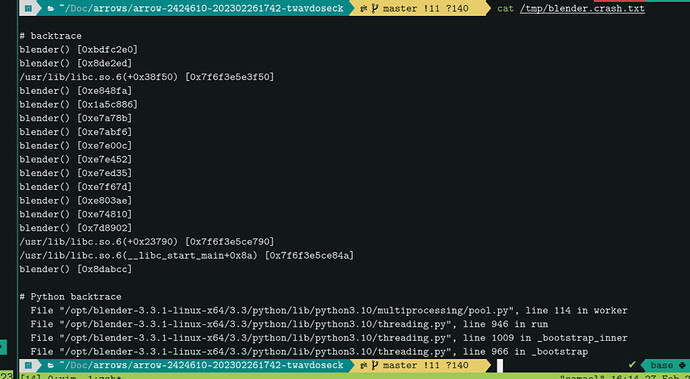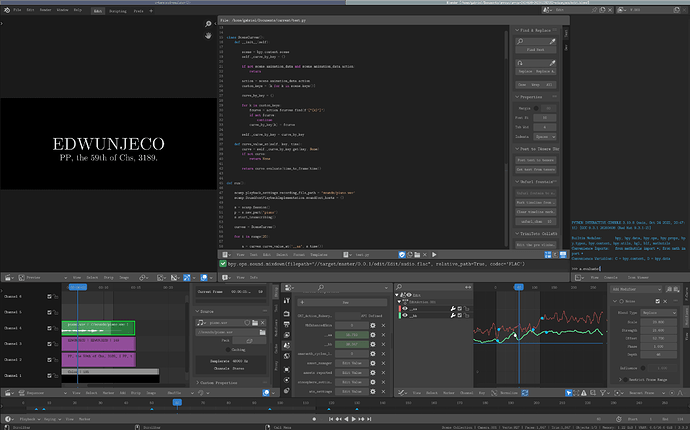Hello,
I’m running Scamp from within Blender. I’m trying to spit out wav files from my script. It works once: I run the script, the sound plays, the wav file is written.
But when I rerun the script (creating a new session, etc), even though the notes are played, the wav files are not written. There are no errors or warnings.
How does Scamp know when to write the file? I find, tbh, the API for this a bit strange. I’d like to generate a session, maybe assign an output to it (perhaps with a timestamp for the name, etc), and when I play notes on it and the sessions end, I’d expect that file to be rewritten.
If I restart Blender it again works once.
Thanks,
Gabriel




 . Sounds cool, but not yet usable.
. Sounds cool, but not yet usable.

